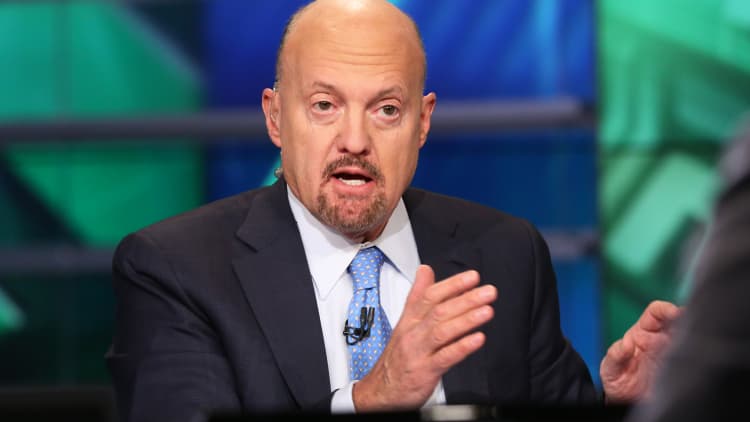
1. Stock futures rise slightly as Wall Street wraps up a wild week of trading
U.S. stock futures traded marginally higher on Friday as traders concluded a volatile week of trading. Dow Jones Industrial Average futures were up 40 points, or 0.2%. S&P 500 and Nasdaq 100 futures gained 0.2% and 0.1%, respectively. Futures got a boost after Dr. Anthony Fauci told NPR that Moderna's vaccine data looked "promising." Moderna shares gained 5% in the premarket. The major averages were headed for sharp weekly gains. The S&P 500 and Nasdaq entered Friday each up about 3% week to date while the Dow was on pace for its best weekly performance since the April.
2. China doesn't set 2020 GDP target
In a rare move, the Chinese government opted against setting a GDP target 2020 as the coronavirus batters the world's second-largest economy. "This is because our country will face some factors that are difficult to predict in its development due to the great uncertainty regarding the Covid-19 pandemic and the world economic and trade environment," said Chinese Premier Li Keqiang. That announcement, which was made at China's annual parliamentary meeting, came after the Chinese economy contracted by 6.8% in the first quarter.
3. China set to impose stronger security law over Hong Kong
The Chinese government unveiled a new national security law for Hong Kong on Friday after last year's burst of anti-government protests in the territory. China was "exercising the power (of) the constitution to establish and improve at the state level a legal framework and an enforcement mechanism for safeguarding national security in Hong Kong," a government spokesperson said. "This is highly necessary." The proposed measure comes amid rising tensions between China and the U.S. Earlier this week, the Senate passed a bill that would potentially delist Chinese stocks from U.S. exchanges.
4. Trump: 'We are not closing our country' if second coronavirus wave hits
President Donald Trump said the U.S. economy would not shut down for a second time if another wave of coronavirus infections hits the country. "People say that's a very distinct possibility, it's standard," Trump said Thursday when asked about a second wave. "We can put out the fires. Whether it is an ember or a flame, we are going to put it out. But we are not closing our country." His comments come as most states have started to lift coronavirus restrictions.
5. IBM to cut jobs
IBM announced Thursday night it will cut an unspecified number of jobs as the tech giant grapples with the coronavirus pandemic. Though the company didn't say how many people would be laid off, The Wall Street Journal reported the plans could impact several thousands of people.
— Follow all the developments on Wall Street in real-time with CNBC's live markets blog. Click here for the latest news on the coronavirus.





